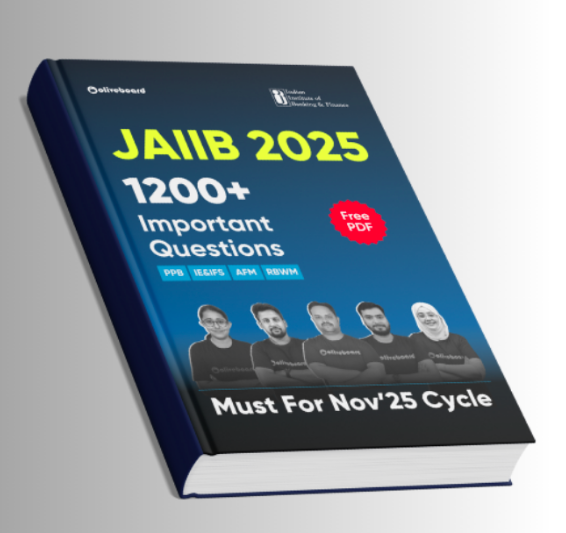
Exams


Railway RRB JE Syllabus - Complete Details

Railway RRB JE Syllabus
Railway Recruitment Board is going to release the recruitment notification for the post of Junior Engineer in 2021. Candidates can apply for the RRB JE exam on the official website after the notification is released. There are four stages in RRB JE which are: Computer-Based Test 1, Computer-Based Test 2, Document Verification & Medical Test. In this section, we will be discussing about the syllabus covered in CBT 1 and CBT 2.
Having sufficient knowledge about the exam syllabus will serve you well in competitive exam preparation. The RRB JE Syllabus is as follows
RRB JE CBT 1 Syllabus
Mathematics
Data interpretation, Pipes and cistern, Trigonometry, Clock and calendar, Permutations and combinations, Square root, Probability, Mensuration, Time and Work, Speed, distance and time, Partnership, Allegation and mixture, Average, Elementary statistics, Ratio and proportion, Problems on age, Profit and loss, Simple and compound interest, Geometry, Percentage, HCF and LCM, Algebra, Number system
General Science
Physics - Up to 10th standard syllabus, Chemistry- Up to 10th standard syllabus
Reasoning and General Intelligence
Mathematical operations, Alphabetical and number series, Jumbling, Statement- assumptions and argument, Seating arrangement, Syllogism, Ranking and order, Puzzles, Input and output, Similarities and differences, Decision making and conclusions, Inequality, Direction and distance, Blood relations, Analytical reasoning, Coding and decoding
General Awareness
Indian economy, Indian history and culture, Geography, Environmental issues, Railway budget, Current affairs, Indian Constitution, General knowledge on railways, Indian polity, United Nations Organization (UNO), Committees and heads, Awards and Honours, Sports, Static general knowledge.
RRB JE CBT 2 Syllabus
The General Awareness and Physics-Chemistry section syllabus would be similar to the CBT-1 exam.
Basics of computer applications
Web browsers, Internet and email, Websites, Computer virus, MS Office, Different data representation, Operating system, Storage device, Networking, Computer architecture, Input and output devices.
Basics of environment and pollution control
Acid rain, Waste management, Global warming, Ozone depletion, Environmental basics, Effects of environmental pollution and solutions, Water/noise/air pollution and their effects
Technical abilities Syllabus for CBT-2
Civil engineering
Steel structures, Valuation, Structural analysis, Projections, Highway planning, Hydraulics, General civil engineering, Errors and adjustments, Concrete structures, Structure engineering, Construction, Costing and curves, Coordinate system, Engineering drawing, Building materials, Estimating, Environmental engineering, Hydrology, Mechanics, Soil mechanics.
Electronics engineering
Energy bands, Microcontroller and microprocessor, Junctions, Tunnel, Digital signal processing, EMFT, Control system, Electronic circuits and devices, Diodes, Recombination and generation of the system, Wireless communication, Digital and analogue circuits, Basics of signals and systems.
Electrical engineering
Control and power systems, Signals and systems, Circuit theory, Electrical and electronic instruments, Machines, Basics of power electronics and circuits, Measurements and circuits system, Analogue and digital electronics.
Computer science engineering
Web technology, Web programming, System programming, Network communication, Languages, DBMS, Computer Fundamentals, Computer networks, Operating systems, MS Office, Software engineering.
Metallurgical and chemical assistant
Polymers, Instrumentation and measurement, Material Science, Thermodynamics, Basic concept of fuel, Environment and pollution control, Applies chemistry, Computers
Mechanical engineering
Thermodynamics cycles, Power engineering, Heat transfer, Power engineering, Metrology and inspection, I.C engine cycles, Fluid mechanics, Casting, Engineering Mechanics, Kinematics of Machines, Machine tool operations and machining, Steam tables
Information technology engineering
SAD, UNIX, Software engineering, System engineering, MS Office, Operating system, Network and data communication, Computer organization and fundamentals, DBMS, C++/ C/ Java.
Measurement and instrumentation engineering
Transducers, Industrial instrumentation, Process instrumentation, Flow measurement, Mechanical measurement, Basics of the measurement system, Circuits, Analog and digital electronics
RRB JE Exam Preparation Tips
Attempting the RRB JE mock tests on a regular basis will help the candidates in developing a solid foundation for the main exam.
Candidates can follow the following preparation advice to prepare for the RRB JE exam:
- Go through the syllabus and exam pattern thoroughly. This will help candidates develop a strategy for solving the RRB JE exam in a systematic manner.
- Solve mock tests, previous year papers, and practice papers periodically. This will be useful for developing confidence and speed and can also be used to measure one’s performance by the marks scored in each test.
- Time management is another crucial aspect of RRB exams. Since the exam is administered through an online mode, candidates must prepare themselves to solve questions promptly and correctly.
- There is negative marking in the RRB JE written exam for questions that are incorrectly answered. Candidates must try only the questions they are sure of solving and not lose too many marks by answering questions incorrectly.
- The best way to keep yourself ready for the RRB JE exam is by revising the syllabus regularly. Until a candidate is completely updated with the syllabus and has spent a balanced amount of time for the preparation of each section in the exam, scoring good marks and qualifying for the exam is going to be very tough.
FAQs
Minimum age 18 years, maximum age 33 years.
There are two stages in RRB JE Exam, both are Computer-based tests.
The number of vacancies will be announced with the official notification which is yet to be released.
The application fees are as follows:
Un-Reserved Category – ₹500
SC/ST/Ex-servicemen/PwBDs/Women/Minorities/Transgender/EBC – ₹250
Take a Free Mock Test now
 100 marks
100 marks
 100 Qs
100 Qs
 90 min
90 min

























